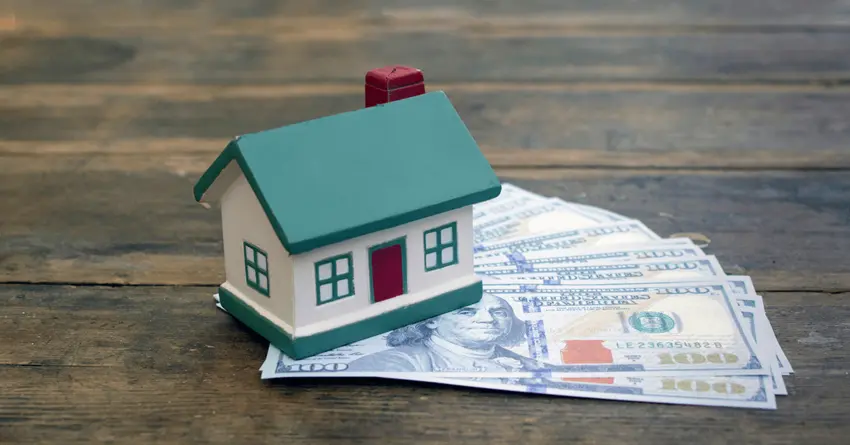EMD real estate, or Earnest Money Deposit real estate, is a critical part of property deals, showing you’re serious about buying a home. Understanding how EMD works is essential to buy real estate, sell your home, or start real estate investing. In this article, we will break down what EMD is, how it affects real estate transactions, and how it can help you navigate the property market confidently.

Content
What Is EMD in Real Estate?
EMD real estate (Earnest Money Deposit) is a deposit made by the buyer to show their commitment to purchasing a property. This deposit helps to solidify the buyer’s intent and serves as a security for the seller. If the transaction falls through without a valid reason, the seller can keep the EMD to compensate for their lost time.
In most cases, EMD real estate is a percentage of the sale price, usually between 1% and 3%. If the deal goes through, the EMD is typically applied to the home purchase price or closing costs.
The Role of EMD in Buying a House
When you decide to buy real estate, submitting an EMD is one of the first steps to securing a property. This deposit demonstrates your seriousness about the deal. EMD can also give you leverage in a competitive market, as sellers are more likely to take your offer seriously if you provide a substantial earnest money deposit.

Steps to buying a house include finding the right property, making an offer, and presenting your EMD. The amount varies based on the price of the home, but a larger deposit often signals to the seller that you are a committed buyer.
Why Is EMD Important for Sellers?
For sellers, a hefty EMD real estate offers peace of mind. It shows that the buyer has enough financial stability and serious intent to follow through with the deal. Additionally, if the buyer backs out without a valid reason, the seller can keep the EMD to compensate for the time and effort spent on the sale.
A well-thought-out EMD can help sell your house faster, especially in competitive real estate markets. Sellers may increase their EMD request as a tactic to weed out non-serious buyers or to encourage quick decision-making.
EMD and Real Estate Investing: A Crucial Step for Beginners
For those looking to start real estate investing, understanding the role of EMD is essential. When you’re bidding on a property, especially in competitive markets, offering a larger EMD can give you an edge over other potential buyers.

Real estate investing for beginners often involves securing distressed properties or purchasing at auction, where the EMD is even more crucial. A solid EMD real estate shows you’re ready to proceed and can act as a negotiating tool, whether you’re dealing with commercial real estate or residential properties.
Protecting Your EMD: When Can You Lose It?
While the EMD is intended to show commitment, it’s important to understand the circumstances in which you can lose it. EMD real estate is generally refundable if the sale is not completed due to reasons stipulated in the purchase agreement, such as issues with the home inspection or problems with securing financing. However, if you back out without a valid reason, the seller may keep the EMD.
To avoid losing your EMD, ensure all contingencies are met before signing the agreement. These contingencies typically include financing approval, home inspections, and appraisal evaluations.
How to Determine the Right EMD Amount
Determining the right amount for your EMD depends on several factors, such as the property value, market conditions, and the seller’s expectations. A typical EMD real estate deposit ranges from 1% to 3% of the purchase price. In competitive markets, it may be wise to offer a higher EMD to make your offer stand out.
If you’re unsure of the right deposit amount, consult a real estate agent or broker. They can advise on the best strategy based on local market conditions and the specifics of the property.
Using EMD to Sell Your Home Faster
If you’re looking to sell your home quickly, offering flexible EMD terms can help attract serious buyers. A buyer who is willing to offer a larger EMD often signifies a stronger commitment and can expedite the sale.
It’s also important to highlight that EMD real estate serves as a buffer for sellers, especially in luxury real estate or commercial real estate transactions where larger deposits are common. The higher the EMD, the less likely the buyer is to back out of the deal.
Home Value: How EMD Relates to Property Pricing
A strong EMD is also a reflection of a property’s value and can influence the buyer’s perception of the home. If you’re trying to buy real estate, a higher EMD can sometimes help you secure a better deal, especially in markets where property for sale is limited.
Tools like home value estimators are essential when determining how much to offer as EMD. By understanding the current market price and trends, you can better gauge an appropriate EMD to offer without overcommitting.
Using EMD to Secure Luxury and Smart Homes
For those looking to buy luxury real estate or smart homes for sale, EMD becomes even more important. High-end properties often require larger deposits, and making a strong EMD offer may set you apart from other buyers. Sellers of luxury real estate want assurances that buyers are serious and able to complete the transaction quickly.
Similarly, eco-friendly homes and properties with advanced technologies are becoming increasingly popular. Offering a competitive EMD may be a deciding factor in securing a deal on such properties.
Trends in Real Estate: Virtual Tours and EMD
With the rise of virtual home tours, many buyers are now able to make decisions about purchasing property without stepping foot on the premises. For those looking to buy real estate remotely, submitting a strong EMD can ensure that your offer is taken seriously, even if you’re not physically present to sign the agreement.
In today’s market, virtual home tours have become an essential part of the process, and combining them with a well-thought-out EMD can help streamline your buying process.
Conclusion: Maximizing Your EMD Strategy for Successful Real Estate Transactions
In conclusion, EMD real estate plays a crucial role in buying, selling, and investing in properties. By understanding its importance, you can use EMD to negotiate better deals, avoid losing your deposit, and secure your dream property. Whether you’re a beginner looking to invest in real estate or a seasoned seller, offering the right EMD amount is essential for smooth transactions.
FAQs
What does EMD mean in real estate?
EMD stands for Earnest Money Deposit. It’s a sum of money a buyer provides to show serious intent to purchase a property during a real estate transaction.
Can you get your EMD back if a real estate deal falls through?
Yes, you can typically get your EMD back if the deal falls through for valid reasons listed in the contract, like failed inspections or financing issues.

With a sharp eye for design and a passion for renovation, Samantha transforms fixer-uppers into dream homes. Her expertise in remodeling adds extra value to your real estate experience.












